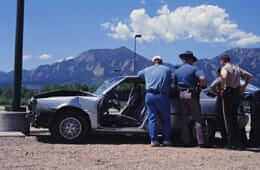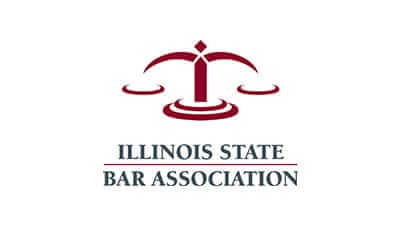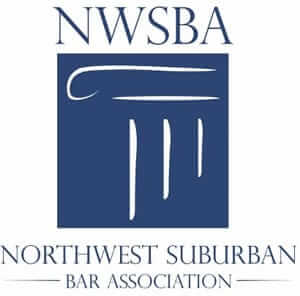Chicago and Cicero DUI Attorney

Concentrating In DUI Defense
At The Law Offices of Carlos H. Davalos, we understand that you have a number of choices when deciding which attorney to take your case. Some attorneys work in many fields like immigration and family law and do not concentrate in DUI cases. Attorney Davalos does concentrate in DUI cases and has also been recognized by the NCDD, or “National College of DUI Defense,” as a premier DUI defense attorney in the State of Illinois. Don’t make the mistake of going to your first court appearance for a DUI with the sole purpose of pleading guilty. Speak with an experienced DUI defense attorney first. There are defenses. Attorney Carlos H. Davalos knows these defenses. We are here to help you. Our Law Offices vigorously defends people facing misdemeanor DUI and aggravated Felony DUI charges in the Cook, DuPage, and Will County areas. Felony DUI courtrooms in those Counties can be imposing, but we have been there. We know those courtrooms. Let the experience of DUI attorney Carlos H. Davalos walk in with you; our firm can explain the entire process to you down to the last detail.
Roadmap To An Acquittal
Beating a DUI case is a learned skill. In tough times, go with an experienced DUI attorney who has done it before. When defending your DUI case, attorney Carlos Davalos will thoroughly evaluate the events leading to your arrest, relentlessly looking for a way to obtain a dismissal of the DUI charge or a possible reduction to a non-alcohol driving offense. Some of the many strategies we may be able to use in your case include:
- Lack of reasonable suspicion for the police to stop you
- Lack of probable cause for the police to arrest you
- Improper sobriety checkpoint procedures
- Faulty field sobriety test administration
- Inadmissible breath test results
- Failure of the police to inform you of your legal rights
- Outright jury trial
Stopped For Suspicion of DUI
An investigation into a DUI arrest oftentimes begins long before you are aware that its happening. A police officer may be conducting roadside velocity checks or participating in a DUI saturation patrol with an eye towards observing bad driving. Upon noticing any erratic or illegal driving maneuvers, an officer will then tail a vehicle looking to observe additional traffic violations in an effort at building their case with respect to a person’s bad driving. After observing one or more moving violations, or even equipment violations in some instances (no tailight, no plate light) an officer will initiate a traffic stop. Upon curbing a vehicle, an officer will approach the driver’s side of the vehicle and either immediately request a person’s drivers license and insurance or initiate general queries regarding the purpose of the stop or where the person is headed. Throughout, an officer looking specifically for intoxicated drivers will note the look of your eyes (red? glassy? bloodshot?) as well as the manner of your speech. An officer will observe whether you understand questions or are confused by them, as well as smelling the air nearby for the scent of alcohol emanating either from the person or the vehicle. If an officer notices some or all of the above the DUI investigation continues and the suspected person is asked to exit the vehicle. Please note that the officer will be observing the exit as well looking to see whether the person stumbles out of the vehicle or requires holding on to the vehicle, or the officer in some cases, for physical support. If the police vehicle has a dashboard camera the entire stop and the events associated with it will be recorded. Any stumbling or fallling outside the vehicle will be recorded by the camera. Also, the camera can typically record sounds as well so any slurring of speech or confusion will be documented and recorded as well.
The DUI Field Tests
If an officer then asks you whether you want to submit to field sobriety tests, you can be more or less certain that the officer already suspects that you are drunk driving and is now seeking to gather additional evidence to establish the officer’s case in court. At this point, if you are are asked to submit to these tests, you have a decision to make: perform the tests or refuse to perform them. An officer typically will not tell you that you have a “choice” to do the tests or not, nor will the officer inform you that you can refuse or say no. But all stopped drivers indeed have a right to refuse any and all tests requested by law enforcement at the scene. This includes the initial HGN test where an officer will use a lighted pen or other stylus and have you follow it with your eyes while he or she checks for nystagmus. It is very difficult to refute the officer’s observations in this situation and so the defense must check whether the test was explained and conducted correctly or whether the person is subject to certain physical or medical conditions that would explain the officer’s observation of nystagmus. Another way to prevent the police from gathering flawed information in this situation is simply to refuse the test. The same applies to the walk and turn test or the one legged stand test. If for whatever reason you feel your performance on these tests will be unsatisfactory due to weather conditions, footing, or simply nervousness, respectfully refuse the tests or request that your attorney be present during any and all tests to ensure that they are properly administered per your rights. A refusal in this situation must be respected by law enforcement. Finally, the Portable Breathalyzer Test can be submitted to or refused. New case law prevents police from simply telling you to blow into the device, they must request that you do so and provide you with an opportunity to refuse. If you feel that you can absolve yourself by blowing into the PBT and render a result below .08, it is adviseable to blow. If you feel that blowing will only provide police with additional evidence against you, it would be prudent to elect refusal of this test as well.
The DUI Arrest
At the conclusion of these tests, the officer will have to make a decision whether to arrest you for DUI. If the officer decides to place you under arrest for DUI, it is important to remember that the investigation and the gathering of evidence against you is by no means over. The investigation continues somewhat covertly in certain aspects. The officer may continue to ask you questions in an effort at causing you to look confused or admit to drinking alcoholic drinks in front of the dashboard camera. The camera on the cop car will continue to run and so if you are arrested and place your hands on the hood of the vehicle, your face and mannerisms are still being recorded. If you become belligerent and begin insulting the police officer for his or her decision to arrest you, that will be recorded as well. Upon being handcuffed police will place you in the inside of a squad car. The squad car usually has a camera that records the back seats of the police car. This camera is typically on and working; and for good reason: it gathers alot of additional observational evidence about the person arrested. For example, if the cops leave you alone in the squad car and you begin to say things and curse the police believing you are in a private place, you are not, your statements are being recorded. If you fall asleep, start to dose off, or have difficulty staying awake while in the cop car while being driven to the police station, that is recorded. If you make additional statements to the police while on the way to the police station, that is recorded as well. Thus, even though you’ve already been arrested for DUI, the gathering of evidence to be used against you continues unabated.
Arrival At The Police Station
Unsurprisingly the presence of additional cameras awaits a person brought to a police station for arrest on a DUI. Any footage of you sleeping, crying, or regurtitating at the police station will likely be recorded and saved. The request to submit to chemical testing at the police station is usually the final step following a DUI arrest. If a person is suspected to be under the influence of drugs, a urine sample will be requested by law enforcement (do you want to pee into this cup?). If a person is suspected of being under the influence of alcohol, then the person will be asked to submit to a breathalyzer tests. Prior to that test, a person must be observed for 20 minutes. During those twenty minutes, a person cannot put their fingers into their mouth, regurtitate, or chew gum prior to testing. Doing that will render the breath test results invalid. Police know this and will be observing to see whether you do any of those things or not before testing. The breath test at the station can be refused as well. Should you believe you will be providing police with incriminating information against you if you blow, the best choice would be to refuse testing. Though this causes a longer than usual suspension of your driving privileges because of a refusal, the State will likewise have less evidence against you in support of their DUI case at trial or during pre-trial negotiations. Upon completion of the chemical testing process at the police station, a person will either be let go at the police station or detained for a court bond hearing at the soonest possible date.
Dashcams And Body Cams
The video that is obtained from the police department on a DUI case is typically the most important piece of evidence which can work to exonerate you. Sometimes, no on-scene camera footage can be obtained if it is the police department’s policy not to record footage on their patrol vehicles. However, more and more police departments are adopting not only dashbaord camera capabilities, but body camera capability as well, which effectively video-records all of the events of the DUI arrest as it occurs in real time. Video evidence is important in obtaining positive information on a client’s speech or behavior that a police officer may not note in their police reports. If a police officer claims that a person was slurring, a video can be used to show that a person sounded coherent. What are some of the more important list of things an attorney or client is looking for when viewing the video in their DUI case? Here, we have compiled a short list of key things to look which should help turn a serious DUI case in your favor: Handing Over of Drivers License and Insurance- When an officer approaches your vehicle and begins conversation with you, the talk will inetivably involve a request for your driver’s license and insurance. The officer will be looking to see how long it takes you to produce it and whether you have any difficulties in finding it and handing it to the officer. A prompt and successful handover indicates many positives, it shows that you maintain mastery over your dexterity with successful hand movements as well as good hand to eye coordination. It also shows that you have heard instructions, understood them, and followed them. Video footage of a prompt and successful handover of your drivers license and insurance is excellent evidence that you were not in fact drunk. Exiting the Vehicle– After an Officer initially approaches you during a stop, the officer will typically return to his or her vehicle to run your information on squad computers to check if your license is valid and that there are no outstanding warrants pending against you. After the officer has done this, he or she will return to your vehicle and typically make a request that you exit your vehicle. The request is made with a pretense as well; your vehicle exit is closely observed by the officer to check for any balance issues you may have on your exit. For example, if you have to hold on to the door to exit the car, or you stumble out of the vehicle or fall over when getting outside, that is most likely evidence that will be used against you in court. On the other hand, if you properly exit your vehicle with no issues and without having to use the car for balance, the officer will most likely not affirmatively make a note of that in the report. Thus, the video footage is the evidence you will need to show a judge that you exited your car without any difficulties. intoxicated people typically have a number of issues exiting their vehicle. Exiting the car properly is strong evidence that you were in complete control of your balance, from your lift from a sitting position to a standing position outside of the vehicle, something which an intoxicated person would not be able to do. Body Posture Outside of Your Vehicle– After exiting your vehicle, the cameras continue to record and the client would be well advised to be coignizant of that. Specifically, the camera and the officer can catch balance issues while you are standing, i.e., if you are swaying and wobbling while standing. Footage that shows that your are leaning on your vehicle for balance or support, or even on the officer in more extreme situations, are things which will be pointed out against you by well trained and experienced prosecutors in court. However, the keen eye of an experienced DUI defense attorney can shift the presence of good posture in your favor in court. Specifically, if you are balanced while standing outside of your vehicle while simultaneously speaking with the officer, that is even more evidence that the physical indicia of intoxication is simply lacking to prosecute your case and that you should be found not guilty. This evidence becomes stronger if the ground is wet or covered in ice, or if you are wearing boots or high heels. If you are able to stand straight without assistance and walk to the back of the squad car without assistance or using the vehicle for balance, that is more evidence that an experienced DUI attorney will be sure to use to obtain a not guilty verdict in your favor. Improper FST Instructions– We maintain our advice that FSTs (Field Sobriety Tests, i.e. HGN Test, Walk and Turn Test, One Legged Stand Test, Finger to Nose Test) should be refused when requested, as is your right to do under the law, if the client has any pre-existing medical or physical issues which may affect balance. You dont have to do those tests, even though officers may make it look like you dont have a choice; you in fact do have a choice, and the officer must honor your choice. Nevertheless, many clients choose to participate in FST tests at the time of their traffic stop. The officer is obligated to “properly” explain the tests to you; and not to mention the test rules “after” you have committed perceived violations, or never tell you all the rules at any point. The videos can show that an officer did not properly instruct you as to the field sobriety tests, thereby compromising the results of the tests in court, reducing their weight as evidence against you. Look for all these things when viewing your video to compile a defense, piece by piece, that you were not under the influence of alcohol while driving.
Reduction To 11-503 Reckless Driving
Our offices have helped many clients in avoiding a guilty plea to a DUI with a strategy which involves amending the traffic citation on its face to a different charge, that of 11-503 Reckless Driving. Some clients retain questions post-disposition regarding this legal movement which is oftentimes completed with the agreement of the judge and the state’s attorney’s office. This section is written to clarify some of the questions that can arise regarding this amendment. The charge of DUI can be found under section 11-501 of the Illinois Vehicle Code. On the other hand, the charge of Reckless Driving cannot be found under this section because it is completely different from a DUI. it is instead found under section 11-503 of the Vehicle Code. While this change, in the eyes of an attorney, carries with it a series of very apparent benefits, these benefits may remain obscured to the client, of which may only see a change in just two digits of the traffic citation. To begin, the charge of DUI includes as an element the consumption of alcohol, drugs, or both, while driving an automobile. The charge of reckless driving does not include the element of consumption of alcohol or drugs. Thus, when there is a change, or “amendment,” to your traffic citation from 11-501 DUI to 11-503 Reckless Driving, the accusation that you were under the influence of drugs or alcohol while driving is stricken, or eliminated from the record of facts alleged against you. It is only alleged that you were driving in a wanton or disregarding manner, in sum alleging negligence, and not “intoxication.” The elimination of the element of intoxication is most poignant to our cleints who are here in the United States without citizenship or residency status. Specifically, because the charge no longer alleges the consumption of drugs or alcohol while driving, it will no longer be considered a “crime of moral turpitude” by the immigration courts under federal immigration law. “Crimes of moral turpitudes” are offenses on one’s background where an immigration judge will place particular emphasis in deciding whether immigration benefits should be granted, renewed, or denied. Examples of these benefits include work visas, DACA status, as well as permanent resident and citizenship status. The record affects not only those currently in application for those benefits, but also those who are considering applying for these benefits in the future. Therefore, for someone who is able to obtain an amendment to their DUI citation to Reckless Driving, the change is no mere platitude, but rather a change that carries real and lasting benefits to the client. Of note as well is the fact that since reckless driving is not considered a crime of moral turpitude, it is likewise an offense which will not be singled out by ICE authorities when rendering investigation and detainment decisions. For clients who are residents and citizens of the United States, an amendment to Reckless Driving will also create a list of ongoing benefits. For those who are carriers of a CDL, an amendment will prevent a disqualification of the CDL license as a result of a guilty finding on a DUI. For those taking commercial driving classes or thinking of obtaining a CDL, avoiding a DUI on one’s record will improve chances of employment as a driver. For those currently employed or looking for employment generally, a comprehensive background check going back years has become the standard routine, where eliminating a charge of driving under the influence on your record will provide obvious benefits related to an employer’s perception of the job applicant’s background as well as the decision on whether to hire or fire. Reckless driving charges are not applicable to questions regarding convictions or guilty dispositions regarding drug or alcohol use on a loan or job applications. Moreover, court costs are oftentimes much lower on dispositions to reckless driving possibly saving a client thousands of dollars depending on the locale of the agreement and the agreement itself. Finally, it is our experience that DUI dispositions are given greater weight on an insurer’s decision to raise insurance rates as opposed to those with a reckless driving charge on their record. Thus, our ability to obtain a reducer on your DUI matter is not simply a matter in change of only two digits, it is a change which will help you retain a greater positive outlook on your personal and job prospects going forward.
Protecting Your Driving Privileges
A DUI arrest starts two legal proceedings in Illinois, a criminal charge and an administrative process that could lead to the loss of your driver’s license. Our law offices can represent you in both matters, the civil matter being the summary suspension hearing. Alternatively, we can seek to obtain what is known as an MDDP (“monitoring device driving permit”), which will enable you to drive with the installation of a breath interlock device while the DUI case is pending. Our offices maintains working relationships with the BAIID providers and we can thus assist you in obtaining the devices at a discount, if that is necessary. You also have only 90 days from the date following the arrest to file what is known as a Petition to Rescind Statutory Summary Suspension. The Petition is civil in nature and pertains only to your driving privileges. Caselaw and Statutes provides the grounds from which you can contest the suspension of your driver’s license. If police claim you refused testing that will cause a suspension of your driving privileges on the 46th day following your arrest. Please note that you can still drive legally for 45 days following your DUI arrest provided you keep your receipt to drive located on the back of the notice of sworn report given to you by police in your vehicle. Similarly, if you blew and rendered a BAC result of over .08 (or .04 if under the age of 21), your license will be set to be suspended on day 46 following your arrest. With the filing of the Petition to Rescind, which can be done by your DUI defense lawyer, you can contest and “rescind” the suspension before its set termination date. You must allege and demonstrate proper grounds, for example, that the officers did not have reasonable grounds to arrest you for DUI, or that you were not properly warned regarding drivers license consequences before you submitted to testing. If you win the petition to rescind hearing the judge will permit you to get your drivers license back.
Aggravated DUI Felony Cases


The Law Offices of Carlos H. Davalos aggressively defends people accused of felony DUI, including those accused of their second, third and fourth DUI. While the legal issues and defenses are the same as for a first-time DUI offender, the stakes are much higher. Oak Park DUI lawyer Carlos Davalos will work diligently to obtain the best possible outcome for you. We find alternatives to jail and prison sentences where others find none. We can assist in beating your case.
Proven And Skilled DUI Defense: Attorney Carlos H. Davalos


Put your uncertainties to rest. Contact The Law Office of Carlos H. Davalos today and discuss your DUI case with an experienced Chicago and Cook County DUI defense lawyer. The initial comprehensive consultation is free. Start your DUI defense today with an NCDD accredited DUI defense lawyer. The Law Offices of Carlos H. Davalos.
The Law Offices of Carlos H. Davalos 2210 W. North Ave. Suite 6
Melrose Park, IL 60160 Tel: (773) 312-0234 Chicago Office: 2923 N. Milwaukee Ave.,Suite 911
Chicago, IL 60618 Rolling Meadows Office: 2260 Hicks Road, Suite 409
Rolling Meadows, IL 60008 Bridgeview Offices: 7667 W. 95th St.
Suite 203
Hickory Hills, Illinois 60457













